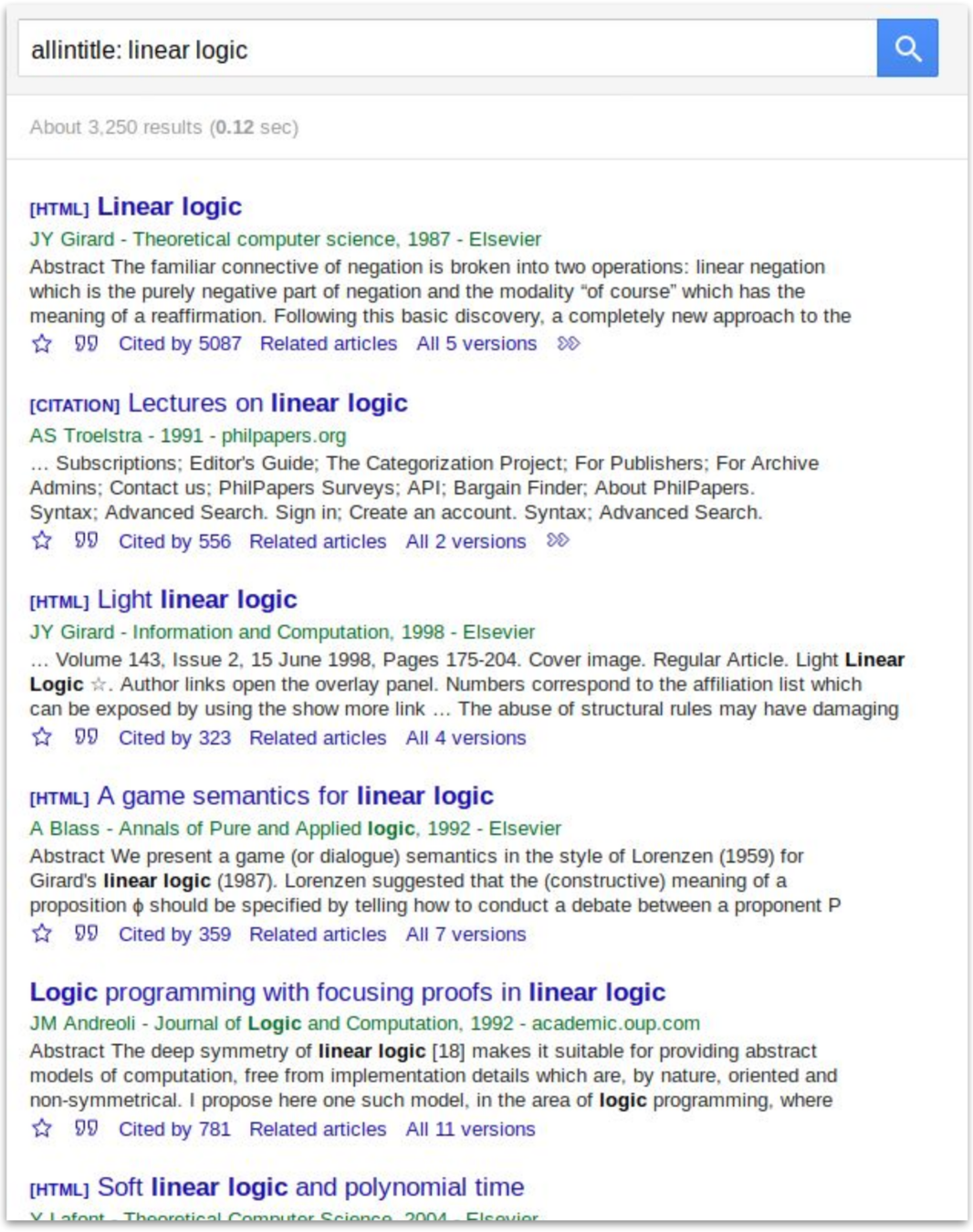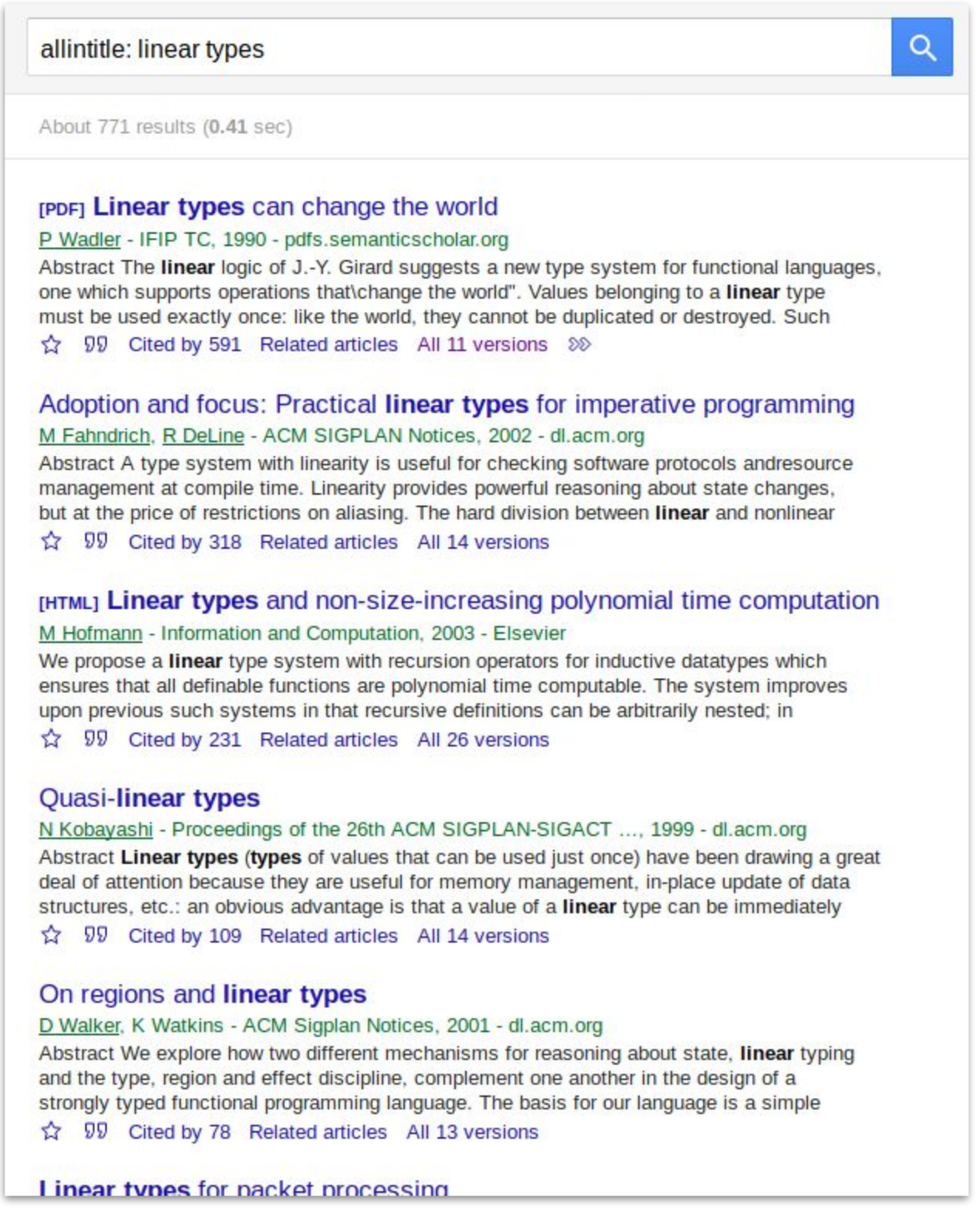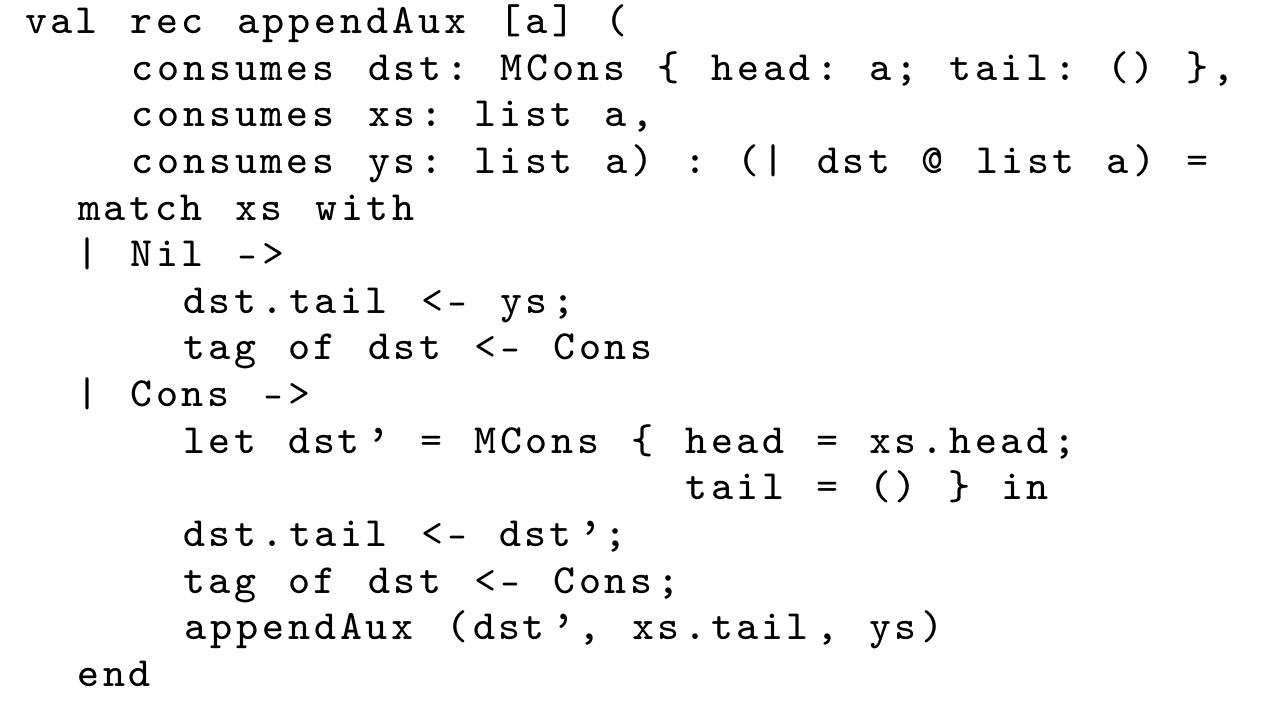Linear Constraints
By Arnaud Spiwack
Linear Constraints
In the past few years, I've been involved in extending the type system of the Haskell programming language to support linear types. In one sentence, a linear argument must be consumed exactly once in the body of its function; a linear function is a function whose argument is linear. Such a linear type system comes from linear logic (or, in this particular case, intuitionistic linear logic, but who's counting?) seen through the lens of the Curry-Howard correspondence. Linear typing has two main families of applications: making pure interface to mutable data structures, such as arrays (“pure” means that functions are functions in the sense of mathematics); and enforcing protocol in the type level, for instance making sure file handles are eventually closed and not written to after being closed. An example that combines both aspects is safe manual memory management, much in the style that the Rust programming language allows. This is all possible in the, latest, 9.0 release of GHC. However these applications, using GHC 9.0's linear types require quite a bit of additional syntactic bureaucracy, compared to their unsafe equivalent. In this talk, after introducing Haskell's linear types, I'll presents linear constraints, a front-end feature for linear typing that decreases the bureaucracy of working with linear types. Linear constraints are implicit linear arguments that are to be filled in automatically by the compiler. Linear constraints are presented as a qualified type system, together with an inference algorithm which extends OutsideIn, GHC's existing constraint solver algorithm. Soundness of linear constraints is ensured by the fact that they desugar into Linear Haskell.












